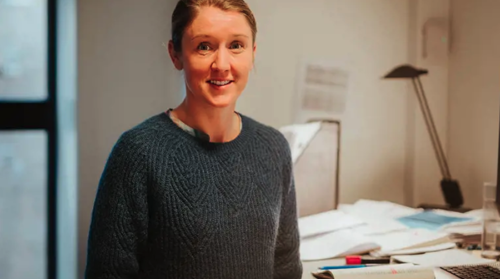- Kristiania University of Applied Sciences
- Research
- Research groups
- SPEcial education & EDucational Research Group (SPEED)
SPEcial education & EDucational Research Group (SPEED)
Key Information
Duration: 2018 -
Participants: Leila Ferguson (leder), Anette Andresen, Dharany Thurairajah, Janne Eldevik, Lotte Furuvik Sand, Øistein Anmarkrud, Jarmila Bubikova-Moan, OsloMet (assosiert medlem).
About the research
We study students with special educational needs, multilingual pupils, university students, and teachers in higher education. Our research topics include early language and literacy skills, dyslexia, online learning in higher education, critical source evaluation, epistemic beliefs, and perceptions of learning and teaching among students and educators in higher education.
Ongoing projects in SPEED
Critical Thinking in Teacher Education (CRITT)
A systematic review of how critical thinking is addressed in teacher education within an international context.
Project group: Jarmila Bubikova-Moan (PI), Leila Ferguson, Anette Andresen
Early Intervention? On the Identification and Assessment of Dyslexia
The study aims to shed light on assessment practices in the Educational-Psychological Service (PPT). A survey was sent to 118 PPT employees in Eastern Norway responsible for dyslexia assessments.
Collaboration: Anette Andresen, Kristiania and May-Britt Monsrud, Statped
Student Experience of Digital “Lived Experience” in Teaching about Mental Health
This study investigates students’ experiences with the use of digital lived experience in the course Mental Disorders and Psychotherapy (fall 2021). The goal was to increase student engagement and improve learning outcomes. Student feedback was collected through a combination of focus group interviews and individual interviews.
Project group: Anette Andresen, Kristin Harbø Buland (IPPJ, Kristiania), and Marina Chrysikopoulou from The Human Aspect
Projects in development
Simple Questions, Big Subjects
The aim of this project is to develop a template for video interviews for educational use that meets the following criteria:
-
Based on user needs
-
Inspiring
-
Relevant to working life and aligned with Kristiania's vision
-
Curriculum-relevant
-
Utilizes the strengths of the video interview format
The project also aims to improve the quality of Kristiania’s educational videos, provide students with career-relevant teaching, enhance learning outcomes and motivation, and connect academic content with the world of work, in line with Kristiania’s ambitions.
By starting with user needs and experiences, we aim to ensure that our teaching materials keep up with and stay ahead of digital developments in academic content, for example on digital platforms and in social media.
By creating a standard or template for an important part of teaching, we aim to help Kristiania communicate consistently, where form and content are aligned, and career relevance is built into all parts.
We will use the NABC development method from Stanford Research Institute. This method consistently involves and is based on end-user needs through both quantitative surveys and in-depth interviews.
Researchers: Rune Oberstad (project lead) and Aase Marie Rolstad
FAM – Feifer Assessment of Mathematics – Norwegian Normed Version
What makes FAM unique in the Norwegian market? The Norwegian test market lacks assessment tools in mathematics. There is no comparable test battery in Norway. FAM is aligned with recent neuropsychological research and with the understanding of math difficulties as an umbrella term for various challenges with different causes and thus different interventions.
An agreement has been made with Hogrefe Norway and PAR (USA) to translate, adapt, pilot, and norm the neurocognitive tool FAM. Additionally, publication rights related to the work have been secured.
Responsible: Aase Marie Rolstad
Teaching in Higher Education (THE Project)
A research project on teaching in higher education aiming to explore university and college teachers' perceptions of teaching, how their teaching develops over time, and their thoughts on researching their own teaching.
The project consists of several parts, including a survey and a qualitative study using interviews to gain insight into educators' perceptions and practices.
Question, Answer, Follow-up
A study of text-based conversations between bilingual children and kindergarten teachers, and conversational qualities that can promote oral language development in children learning Norwegian in kindergarten.
Researchers: Professor Leila Ferguson, School of Health Sciences, Kristiania (project lead), Senior Advisor Maike Luimes, Center for Educational Development, Kristiania
Responsible: Svitlana Kucherenko
In collaboration with: Veslemøy Rydland and Vibeke Grøver (University of Oslo)
